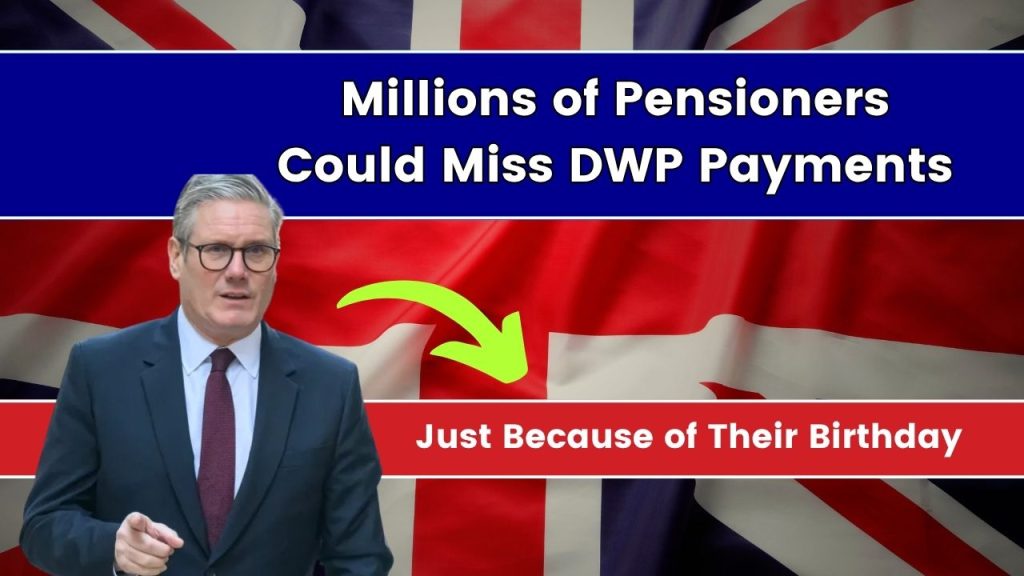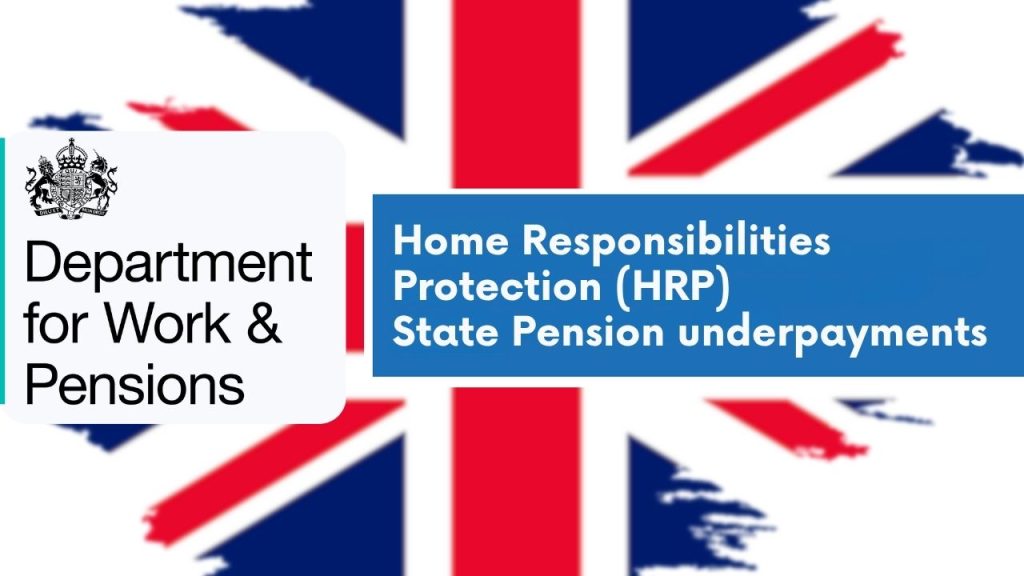Millions of pensioners in the UK could be missing out on vital payments from the Department for Work and Pensions (DWP) due to historic errors linked to their birthdays and other complex rules surrounding the State Pension system. These underpayments, often unnoticed for years, are primarily caused by administrative oversights and manual processes that failed to trigger proper pension increases at key milestones, such as when a pensioner turns 80.

This article unpacks this complex issue in an easy-to-understand way, providing practical advice for pensioners and carers. Whether you’re a pensioner, a family member, or a professional adviser, you will gain insight into how these underpayments occurred, who is affected, what the government is doing to fix it, and what you can do to check your entitlements.
What Is the Issue With DWP Pension Payments and Birthdays?
The root of the problem lies in how the DWP administers certain pension increases based on age and other eligibility criteria. One notable example is the Category D or “enhanced pension” increase that pensioners become eligible for when they reach 80 years old.
For many years, the system relied on manual prompts and reviews to apply these increases. If the required reminders were not set or missed due to human error, pensioners did not receive the top-up payments automatically. Consequently, many have been underpaid for years without realizing it.
Other groups affected include:
- Married women on low state pensions whose payments did not increase automatically when their spouse retired.
- Widows whose pensions were not reassessed following their spouse’s death.
- People eligible for Home Responsibilities Protection (HRP), which affects qualifying years for the full state pension, particularly carers who looked after children before 2000.
These issues stem from a mix of complex pension rules, outdated manual administration, and incomplete data transfers, all contributing to an extensive underpayment problem.
Millions of Pensioners Could Miss DWP Payments Just Because of Their Birthday
| Topic | Details |
|---|---|
| Number of Underpayments Identified | 130,948 cases reviewed between January 2021 and March 2025 |
| Total Amount Owed to Pensioners | £804.7 million underpaid and repaid so far |
| Groups Most Affected | Married women, widows, and pensioners over 80 years old |
| Average Arrears | – Married women: £5,553 – Widows: £11,725 – Over 80s: £2,203 |
| Correction Exercise Deadline | Expected completion by March 2027 |
| Home Responsibilities Protection (HRP) | Separate underpayment review found 12,379 cases totaling around £104 million (Jan 2024 – Mar 2025) |
| Official Resource | DWP – State Pension Underpayments Progress Report |
Millions of UK pensioners have been underpaid by the DWP due to complex pension rules, administrative oversights, and manual processing errors linked to birthdays and eligibility milestones. So far, over £800 million has been repaid with the government aiming to resolve all outstanding underpayment cases by 2027.
If you or someone you know may have missed payments, it is important not to delay. Check your pension record, understand your entitlements, and contact the DWP or professional advisers to ensure you receive the pension you deserve.
Why Did These Underpayments Happen?
1. Manual Review and Reminder Failures
Historically, many pension increases depended on DWP staff manually setting reminders for review dates or birthdays that would trigger pension increases. If these prompts were missed or overlooked, pensions were not adjusted as legally required. This is especially true for milestones such as the 80th birthday increase.
2. Claiming Requirements Before 2008
Before 2008, eligibility for certain pension increases required pensioners to actively claim them. For example, married women often had to claim additional payments when their spouse reached state pension age or passed away. Many were unaware of this, resulting in missed payments.
3. Home Responsibilities Protection (HRP) Errors
HRP is a pension provision designed to help parents and carers by reducing the number of National Insurance qualifying years needed for the full state pension if they cared for children before 2000. A lack of proper data transfer from Child Benefit records to National Insurance records—especially missing National Insurance numbers on older claims—led to incorrect assessments and underpayments primarily for women carers.

How Large Is the Problem?
The scope of this underpayment issue is significant. From January 2021 to March 2025, the DWP reviewed over 877,000 pension cases and found 130,948 that were underpaid, owing pensioners a total of £804.7 million.
The breakdown is as follows:
- Married women: 47,004 underpayments totaling £252.8 million; average arrears per case £5,553.
- Widows: 50,261 cases with £483.4 million owed; average arrears £11,725.
- Pensioners over 80: 33,683 underpayments totaling £68.5 million; average arrears £2,203.
A related review of Home Responsibilities Protection underpayments, conducted between January 2024 and March 2025, identified 12,379 cases totaling approximately £104 million. The government expects the combined correction exercise to cost over £1 billion by its anticipated finish in 2027.
Experts have described this as one of the most significant benefit scandals of recent decades, with women being the hardest hit due to historical policy and administrative oversights.
Practical Advice for Pensioners
If you believe you may be affected, here are clear steps to take:
Step 1: Check Your State Pension Record Online
Use the official UK Government service to review your state pension details online. This will give you an overview of your current entitlement and whether any adjustments have been made.
Step 2: Contact the Department for Work and Pensions
If you suspect underpayment, contact the DWP and request a pension review. Mention any age milestones (such as turning 80), spousal or widow circumstances, or potential HRP eligibility.
- Call the State Pension helpline at 0800 731 7898.
- Visit the official contact page on the government website to find support options.
Step 3: Gather Relevant Documentation
Prepare key information such as your birth date, National Insurance number, spouse’s pension details, and any prior pension correspondence for the DWP.
Step 4: Seek Help From Independent Pension Advisors
Organizations like The Pensions Advisory Service (TPAS) can assist in navigating complex entitlement issues and help ensure you receive all due payments.
How Is the DWP Correcting These Errors?
The DWP’s correction exercise follows a detailed four-step process:
- Data Review: Cross-checking pensioner records against eligibility criteria and age milestones.
- Contact and Verification: Reaching out to pensioners or their representatives for claim validation and additional documentation if needed.
- Repayments and Adjustments: Paying arrears in lump sums and correcting ongoing pension payments.
- Dispute Resolution: Providing appeals and tribunal processes for any contested cases.
Recognizing the scale of the problem, the government has committed to completing all adjustments and repayments by March 2027 to ensure pensioners receive what they are owed.
DWP Confirms 12 Extra Payments on Top of Universal Credit This August: What You Need to Know
DWP Issues 4 Urgent Scam Warnings — Don’t Fall for These Traps
DWP Just Confirmed August Bank Holiday Payment Changes — What It Means for You
FAQs About Millions of Pensioners Could Miss DWP Payments Just Because of Their Birthday
Q: Why does my birthday affect my pension payments?
A: Certain pension increases activate automatically at milestone ages such as 80, but administrative failures in setting reminders have meant this increase has sometimes been missed.
Q: Can I still claim back payments if I was underpaid years ago?
A: Yes. The DWP’s ongoing review allows pensioners to claim arrears from past underpayments once verified.
Q: Who has been most affected by these underpayments?
A: Mainly married women, widows, and pensioners aged 80 or older, due to the way pension rules historically operated.
Q: When will the government finish correcting these pension errors?
A: The correction exercise is scheduled to be completed by March 2027.
Q: What is Home Responsibilities Protection (HRP)?
A: HRP is a provision that helps parents and carers by reducing the number of qualifying years for a full state pension if they cared for children before 2000.






